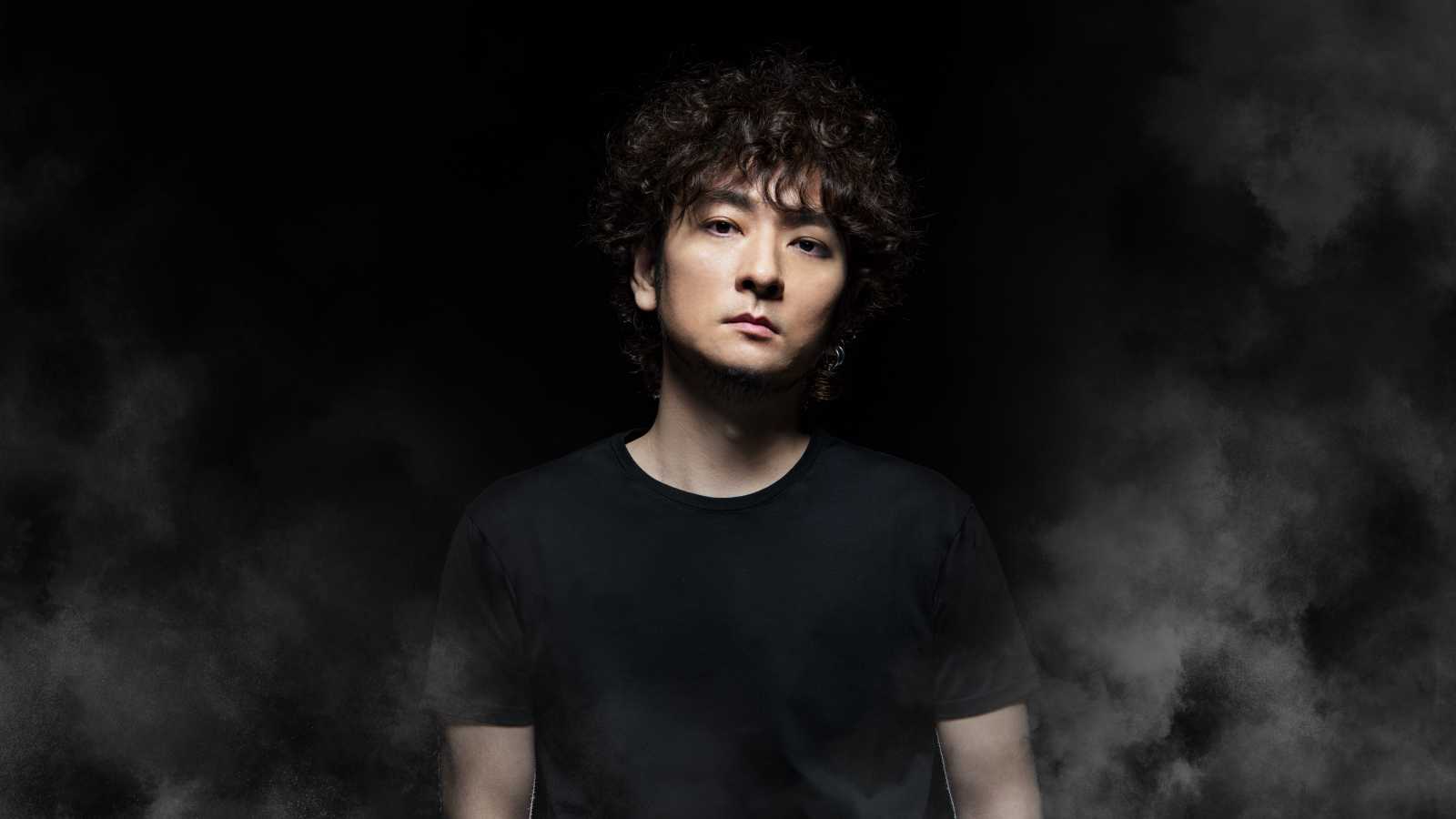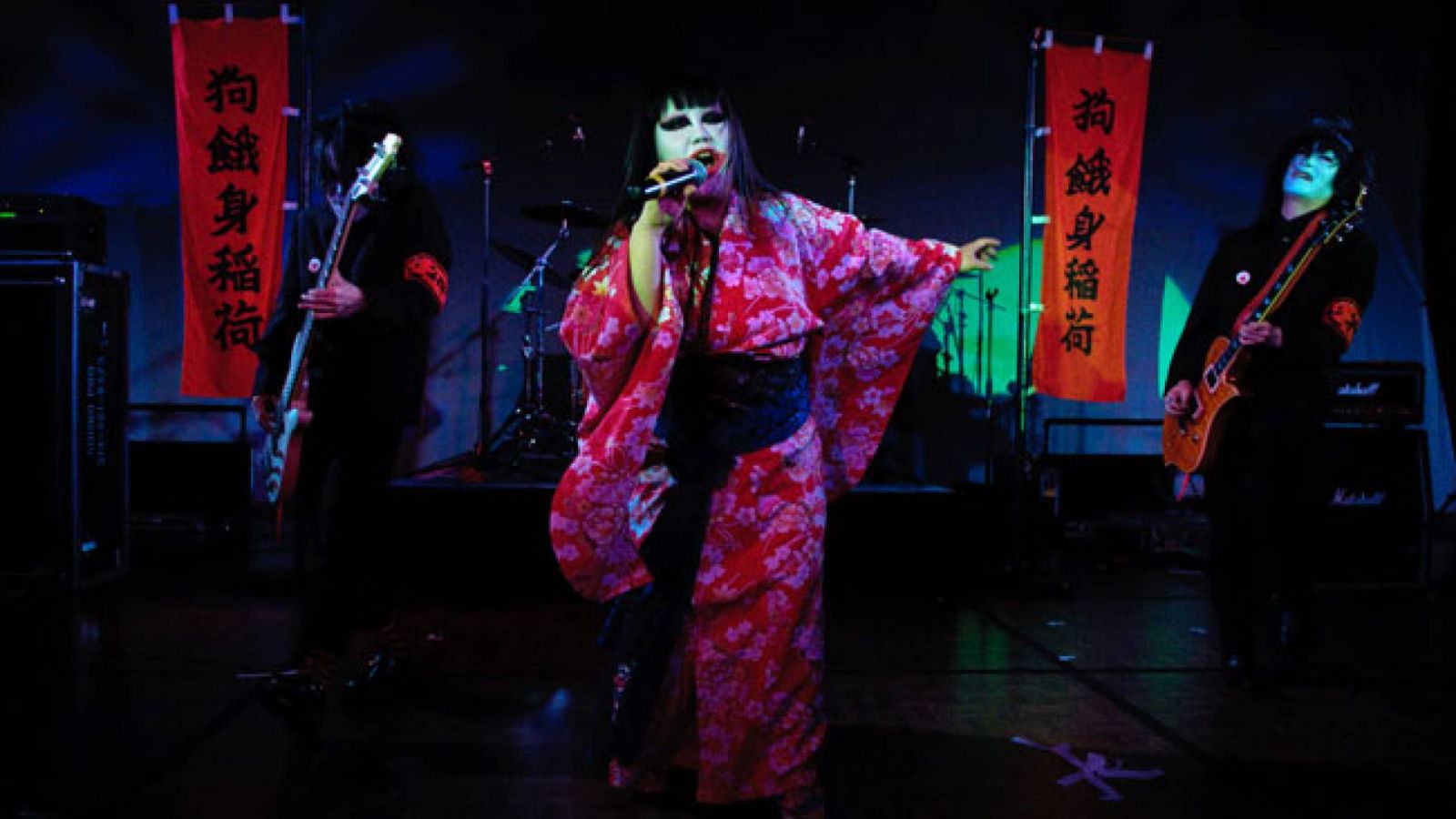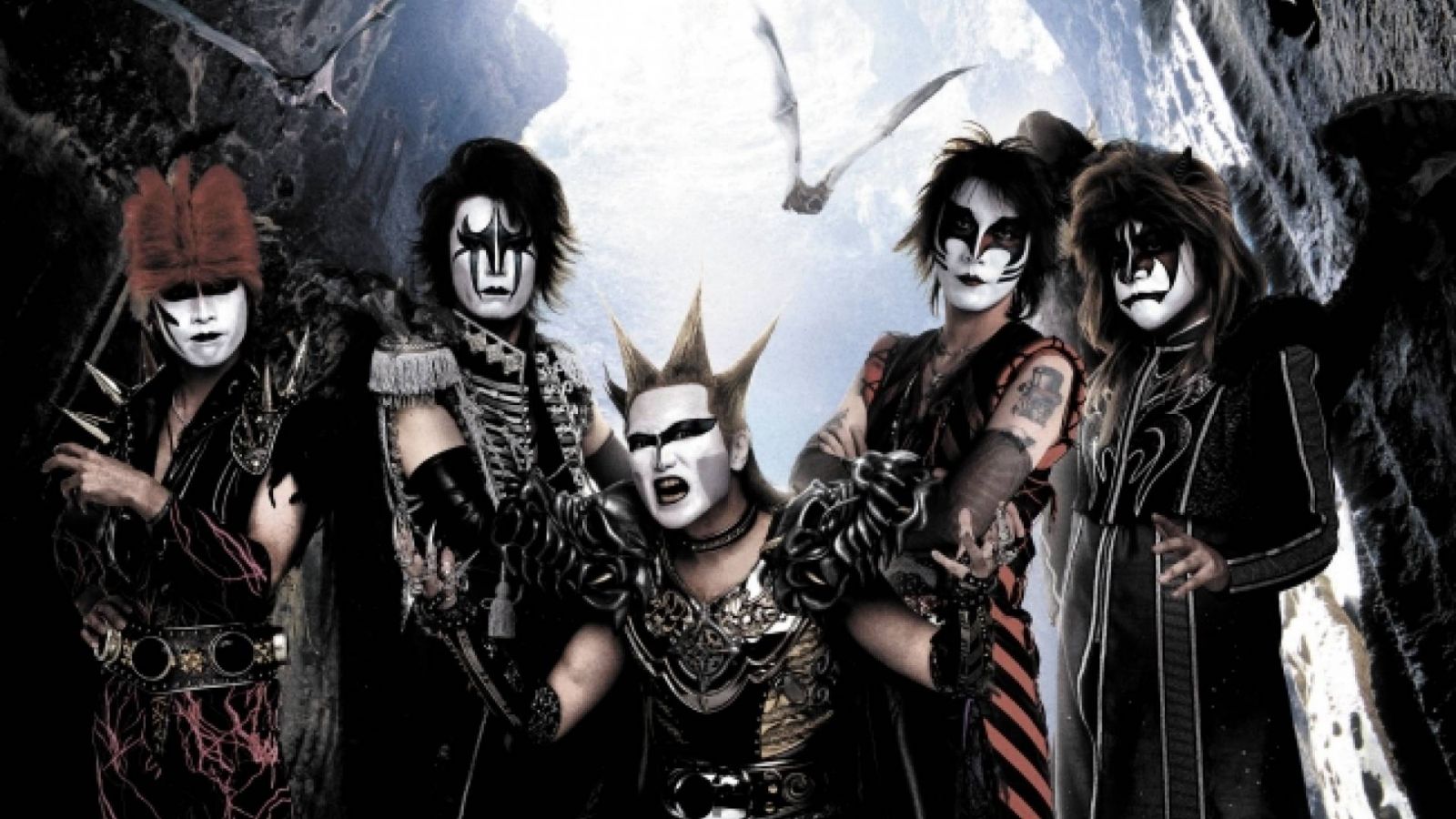Inugami Circus-dan made their overseas debut at the anime convention A-Kon in Dallas, Texas.
At the beginning of June, Inugami Circus-dan made their overseas debut at the anime convention A-Kon in Dallas, Texas. During our meeting with them, they answered questions about the band's origin, their dynamic style, Kyouko's reception to the visual kei scene, to name a few.
Thank you for meeting with us. Please introduce yourselves to our readers.
Zin: Zin, bassist.
Jouji: I'm Jouji, the guitarist.
Akira: I'm Akira, the drummer.
Kyouko: Kyouko, vocalist.
You've been together for over 15 years. Please tell us how all of you came together. What is your history?
Akira: Fifteen years ago, Jouji and I had a jam session and we slowly gathered numbers from doing that. Specifically, we answered an ad placed in a magazine that Kyouko had put in there to form a band. So after we answered it, I asked my friend from college, who was a year older than I, to come and play the bass.
You have an interesting band name. Why did you choose "Inugami Circus-dan"?
Akira: In Japanese, "inu" means dog and "kami" means god. In Japan, like in the U.S., "dog" has a negative connotation and "god" of course is the top, a high connotation. So what we're doing is bringing the lowest of the low with the highest of the high. It's the epitome of what we see in rock music. The lowest stands for the bands who aren't going anywhere and the highest are the megastars. So we're combining the two in the "inugami" part. For the "circus-dan" part, there's an influential writer who made a movie called "Den'en ni Shisu" and there's a troupe in there called the Circus-dan that we drew the inspiration from. They did the same thing in the movie, they were inspired by a movie. We were also inspired by Duran Duran. By paying homage to Duran Duran in that way, we were able to get the second part of our name.
Since you've been together for such a long time, is there anything you would want to change about each other?
Kyouko: We know each other's personalities and habits. We're able to get along so well because we know each other so well. So we wouldn't change anything about each other.
The outfits you wear consist of a traditional kimono, military-style uniforms and dramatic make-up which include a mixture of gothic and kabuki. Why did you choose this type of fashion?
Jouji: We were really influenced by the movie we mentioned before, "Den'en ni Shisu," and the underground culture. We got the concept from the movie; in it there was a group of people wearing the military-style outfits and a girl wearing a kimono. We are also influenced by the underground culture perpetuated in that movie. We wanted to echo that with our appearance.
Sometimes dramatic make-up is associated with nervousness. Do you share the same belief?
Akira: We've never been influenced by that at all. When we get on stage it's like a switch: we're there!
Your lyrics touch disturbing subjects that include molestation, incest, and death. Why do you choose to write about such themes?
Akira: Jim Morrison was maybe the first to bring up topics like that in rock music. So he's a chief inspiration for that.
Do you ever worry or have been told that you went too far with your lyrics?
Akira: Instead of trying to avoid topics like that, the idea is to look at them head on, to overcome them.
Considering the bluntness of your lyrics, how important do you feel freedom of expression is?
Akira: Human existence isn't all pretty and it isn't all fun and games. It's a harsh reality. But in a way, rock is freedom and through that freedom, we're using a freedom of expression to help people see that. That's important to us, that's expressing a reality.
You're at a family convention. How do you feel about singing these types of themes in this type of environment with children?
Jouji: Even in Japan at our concerts there are people who will bring their kids. But at those moments in time, during our lives like that, instead of focusing on the lyrics at these events, it's entertainment. It's less about the lyrics and more about the atmosphere that's being created through our performance.
Akira: Maybe kids should get used to things like this. (all laugh)
Is there a connection or message you're trying to convey with your fashion and the music you create? How do these two blend together?
All: Through our music, our themes express "death," "curiosity," "weirdness" and "terror." We hope the audience is able to relieve themselves of fears or terror they have in their mind when they listen to our scary music. It is because we believe that human beings are able to feel relief from their fear or terror when they face something scarier. Our costume represents human figures who had gone to war and became really crazy after they faced really scary things and were terrorized.
How does religion and sorcery figure into the overall concept of Inugami Circus-dan?
Akira: We are singing horror stories that we've actually experienced in our real life, and a frightening situation that may happen in the future.
Jouji: Sometimes, we make songs about terror stories based on some religious-related things.
You have very interesting covers for your releases, such as Kami no inu. Who designs your covers? Is there a theme or relation with the cover and the tracks on the CD?
Zin: I've been designing CD covers these days; however, we sometimes ask other designers and illustrators to get it done. We, of course, care how the design and illustration relate to our songs and the theme of Inugami Circus-dan. We also look at today's trends of CD cover designs and booklets.
Inugami Circus-dan is considered a visual kei band though you don't sound like the typical visual kei bands of today. Do you still consider yourselves visual kei?
Akira: We do not consider our music as a typical visual kei bands' sound. Simply, people in Japan categorize bands who are performing with heavy make-up as visual kei. Though, I am very satisfied when people call us a "visual kei band."
Kyouko, you add an enka style to your singing. How did you learn to sing like that? Is it a style you always use or is it something specific for Inugami?
Kyoko: While we are creating songs, I was asked to sing in enka-style because our music matches with that singing style; therefore, I had built up my singing style that has a natural enka-taste. I do not sing outside of Inugami Circus-dan, so I don't know how I sing songs when I'm not in the band.
You have an alter ego band named Angelique whose music and fashion style is very different from Inugami Circus-dan. Why did you choose to create Angelique?
Jouji: We've been told from many people that our current music style and fashion, which is very dark, would be difficult to expand the number of audience. Therefore, we decided to try how Inugami Circus-dan would be if we took our dark aspect off.
Would you continue with Angelique?
Akira: It wasn't as successful as we thought it would be. (all laugh) But it's been fun. Though, we're not planning of throwing away the project, we want to make ourselves even better. Some people think that because we do one style of music, we're not able to do another style.
Are you referring to Inugami Circus-dan's music or Angelique's?
All: In Japan, it's proper for a band to stick to one thing. We don't have the same preconceived notions though. We like to try different things.
This is the first time that Inugami Circus-dan has performed outside of Japan. How did you feel about performing in a convention setting?
Akira: We were very happy about it. I'm proud of the fact that the U.S. audience are actually enjoying the Japanese culture like anime and visual kei rock.
Kyouko, you are one of the few visual kei artists and have been around for over ten years. What has it been like working in a male-dominated business?
Kyouko: Since I've been around for so long, I'm kind of like a leader in visual kei. So everyone in the whole visual kei scene is really nice to me.
Did you have any issues or problems in the beginning when you were trying to establish yourself?
Kyouko: I never had any trouble, but when it came time to change into our costumes, it was hard because it was all guys. But now they're used to it, so it's okay to change in front of each other. (all laugh)
Do any of you speak or understand English? Were you worried about the language barrier between you and the convention's audience?
Jouji: Because of the general English education in Japan, we could understand a little bit, but not enough to make a conversation. The A-Kon staff and translators helped us a lot.
Yesterday, you mentioned that when you perform it's about the enthusiasm during the performance and not the lyrics. How do you think the American audience received you?
Kyouko: I'm not sure how the American audience received our performance, but I believe they enjoyed the concert.
Zin: It was probably the first time most of the audience saw a concert of ours, yet I was very glad that everybody received us warmly.
As mentioned earlier, you've been together for 15 years. Why have you decided to perform overseas now?
Akira: We never had the chance. (all laugh)
Had you tried to perform overseas on your own before?
Jouji: We haven't really searched for a specific group on how to get to have lives in other countries. So no, not really.
What plans such as music, touring, etc. does Inugami have?
All: We will be releasing a new single called DEAD END KIDS in August. This will include a live DVD too. Also we are planning to release an album in October.
Now for a fun question: considering you're at an anime convention, which anime would all of you cosplay together?
All: "Youkai Ningen Bem," for sure!
Please share a message with your international fans.
Zin: Well, we don't just want to play in America overseas, we want to play everywhere. So please invite us to places and we'll definitely come.
Jouji: We've really, really been inspired by both American and British music and we don't just want a Japanese audience or just have lives in Japan. So please invite us to come, invite us to your country.
Akira: It's been a strange and wonderful experience. So, please, if you find our music interesting, definitely come and see us.
Kyouko: If and when we do a world tour, please definitely come and see us!
Many thanks to Cure Media for making this interview possible and to Inugami Circus-dan for taking time to answer JaME's questions.

![HYDE [INSIDE] LIVE 2024 -EXTRA- at Makuhari Messe](https://www.jame-world.com/media/image/2024-11/_16-9_14951.jpg)






